Foot & Hoof Care
Biotin is a co-enzyme for four different carboxylase enzymes involved in fatty acid synthesis, gluconeogenesis, amino acid metabolism, metabolism of cholesterol and cell proliferation. Biotin exists in a number of different forms but only D-Biotin is active as the co-enzyme (McDowell 1989). Biotin is present in natural feedstuffs and can also be produced in the hindgut by bacteria. Signs of Biotin deficiency in horses include inflammation and cracks (Cunha et al. 1946; 1948). Whilst many different minerals, vitamins and other ingredients (e.g. yeasts) are included in hoof supplements there is only significant supporting evidence for the use of D-Biotin.

A number of factors have been associated with reduced hoof growth and poof hoof health, such as protein deficiency (NRC 1989). Acute selenium toxicity leads to changes in hooves (Fan and Kizer, 1990) and chronic selenium toxicity leads to cracking of hooves and around coronary band (Rosenfeld and Beath, 1964 and Traub-Dargatz et al. 1986). The maximum tolerable concentration of selenium is either 5mg/kg dm (NRC 2005) or 2mg/kg dm (NRC 1989).
A recent paper from Sweden reported that the heritability of hoof “health” was low (only 0.1; Jonsson et al. (2013). The implication is that management (diet, hoofcare, farriery, etc) plays a much larger role in hoof health than genetic factors. Thus, it is possible for owners to help control hoof health through good practice and nutritional support.
In a survey of geriatric horses (over 15 years of age) Ireland et al. (2012) reported that 80% had hoof abnormalities. Cox et al. (2010) reported that the most common problems affecting Donkeys in the UK were “hoof, dermal and oral problems”.
A number of studies have demonstrated benefits from long term feeding of D-Biotin. Long-term treatment with biotin at a dose of 0.031-0.037 mg/kg body weight (equivalent to 15.5 mg to 18.5 mg) up to 10 months resulted in an improvement of the horn quality of the growing hoof (Wintzer 1986). “Biotin is recommendable as a therapeutic in all cases of hoof problems which are based on disturbed horn elasticity”.
The effects of dietary supplementation with a high level of the B-group vitamin biotin (which has proved successful in the treatment of the similar condition in pigs) were investigated in more than 40 cases of horses with poor hoof quality (Comben et al. 1984). Varying degrees of improvement in the hardness, integrity and conformation of the hoof horn were observed in all cases. It was concluded that “dietary supplementation with 10 to 30 mg biotin/day (depending on bodyweight) for not less than six to nine months is a useful treatment to support other remedial measures in such cases”.
Biotin deficiency has been implicated in horses with poor hoof quality (Josseck et al. 1995; Zenker et al. 1995). Daily supplementation with 20mg D-Biotin improved hoof wall integrity after 9 months (Josseck et al. 1995) and hoof structure and hoof wall strength after 33-38 months of supplementation (Zenker et al. 1995). Less scientifically rigorous studies have suggested 10-30 mg D-Biotin per day for 6-9 months can improve hoof hardness and hoof integrity in horses with poor quality feet at the outset (Kempson, 1987). Increased hoof growth rate and hardness has been reported in Thoroughbred and Thoroughbred cross horses fed 15 mg D-Biotin per day for 10 months (Buffa et al. 1992) whilst a 15% increase in hoof growth rate was seen in ponies supplemented with 0.12 mg D-Biotin/kg bodyweight/day (equivalent to 60mg/day for a 500kg horse) for 5 months (Reilly et al. 1998).
The influence of dietary biotin in horses with brittle hoof horn and chipped hooves was investigated in a long-term study, which was performed over a period from one to six years (Geyer and Schulze, 1994). Ninety-seven horses received 5 mg of biotin per 100 to 150 kg of body weight daily (equivalent to ~25mg in a 500kg horse). The hoof horn condition of the biotin-supplemented horses improved after 8 to 15 months of supplementation as determined by macroscopic and histologic examinations. The growth rate of the coronary horn of horses supplemented with biotin and of control horses was the same. The hoof horn condition deteriorated in 7 of 10 horses after biotin supplementation was reduced or terminated. It was concluded that biotin should be continuously supplemented at the full dosage in horses with severe hoof horn alterations.
The toxicity of D-Biotin in horses is not known but other species are known to be able to tolerate at least 4-10 times the recommended daily amount (NRC 1987).

